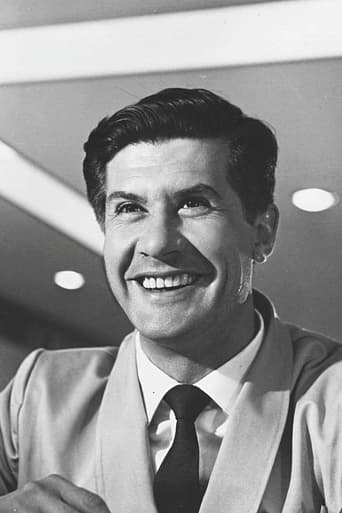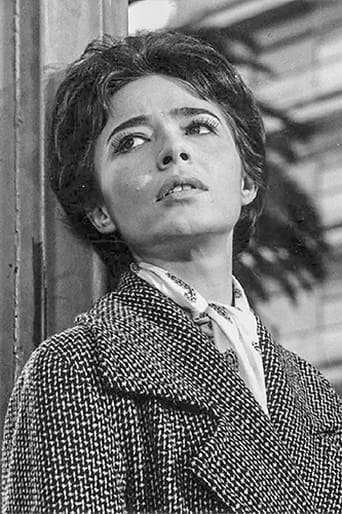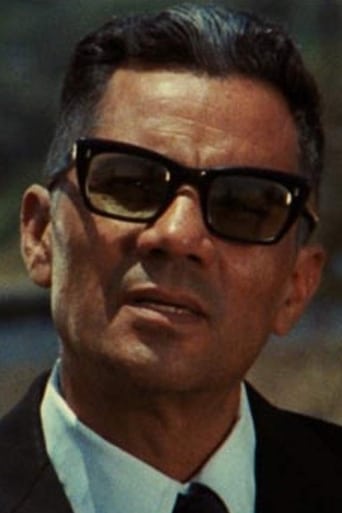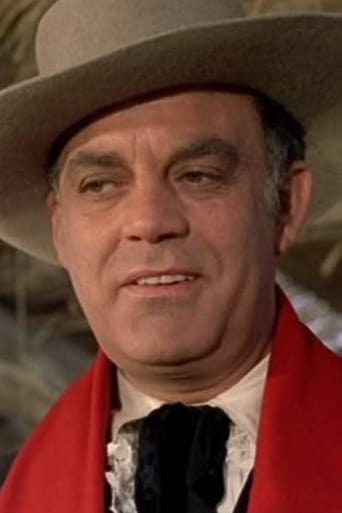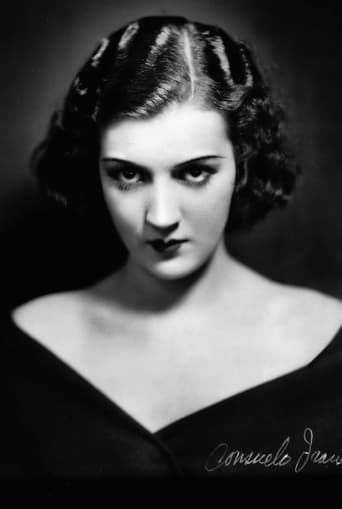SteinMo
What a freaking movie. So many twists and turns. Absolutely intense from start to finish.
ChampDavSlim
The acting is good, and the firecracker script has some excellent ideas.
filippaberry84
I think this is a new genre that they're all sort of working their way through it and haven't got all the kinks worked out yet but it's a genre that works for me.
Walter Sloane
Mostly, the movie is committed to the value of a good time.
jessicacoco2005
Adapted from socialist B. Traven's story of the same name, the film is a artistic masterpiece. The direction, acting are superb. The cinematography is moving and haunting. The trees, the sparseness of the village, even the expression on the actors' faces-all are moving-all are memorable. Have you ever wanted anything in life, something you could just call your own? As Macario's wife admits to her husband she has also wanted something just for herself that she didn't have to share and gives him a turkey she stole that could have cost her her life so he can fulfill his desire to eat a turkey all to himself. For all of Macario's life he has always known nothing, but hunger as has his wife, his children and fellow villagers. However, Macario is a good man and cannot eat whole turkey without ultimately sharing. He is approached by the Devil, God, and what appears a very hungry man with whom does he share his turkey, but why? Poverty, wealth, and racism all are shown here. The story takes place in Mexico during Spanish rule. Whereas the white Spanish ruling elite, shown to be greedy, cynical, arrogant, and inhuman, are wealthy and want for nothing; the local indigenous people, who maybe all honest and hard-working, are forced to starve and live in a dry, sparse desert with barely-thatched roofs, praying to God for justice rather than creating it. The same cinematographer that photographed Brunel's films in Mexico was also the cinematographer of this film. Perhaps, that's why it seems to be an odd mix combining the social criticism of Brunel's Los Olvidados along with the existentialism of Bergman's 7th Seal. Intellectually profound in its depiction of economic injustice in this world, it moves the viewer to comment. As the candle-maker tells Macario, "We are born to die …We spend most of our time dead." It is in contemplating death that we understand life in so far as we have only one; and it is this that makes us question injustice. The near to last scene is unforgettable. Few scenes are as memorable: J'Accuse, the 7th Seal, Ordet are the rare exceptions along with this film. It leaves is with 2 burning questions : What is life? Is it nothing more than a candle that burns for awhile then is spent? What is justice? In a Capitalist world can it be anything more than a concept that like an object can be bought and sold with money?
Prof-Hieronymos-Grost
Macario is a simple peasant, struggling to make ends meet. He gathers firewood in the nearby woods, to sell at market to help feed his large family. However no matter how hard he works, he still finds his children are starving and this hits him hard. With the Day of the Dead festival approaching, he finds it difficult to take that wealthy families are able to make such large offerings of food to their deceased relatives, while he and his family can barely get the bones of a good meal together. He goes on a hunger strike so that his children can have his share, this naturally worries his wife. His wife presents him with a large Turkey for him to eat all by himself, a craving he had confided in her some days previous, he gladly takes it and sets off into the forest to eat it before he starts his working day. Suddenly a man appears all dressed in black, the man beckons him to share the turkey, but despite the man offering him immense wealth in return, Macario refuses. Macario is then confronted by a bearded man dressed in white, again he is asked to share his feast, but Macario refuses yet again. Hungry and more frustrated Macario goes deeper into the forest, where once more he is asked for a share or the turkey, this time by a starving peasant, this time Macario agrees, the man is delighted and offers Macario a rare and special gift in return, he fills his flask with water from a spring and tells him that but one drop from the flask will cure any illness, with one proviso, that the third man will appear at the foot of the bed of the ailing if they are to be cured, but if he appears at the head of the bed, then they must die. Macario gets a reputation as a healer after saving his own sons life and after helping a local richman to save his dying wife, they go into business together and Macario is soon just as wealthy, as people from all walks of life arriving in his town looking for a cure make donations in thanks. Not everyone is happy however, the towns doctor and coffin maker find business hard to come by and its not long before Macario is reported to the Inquisition, they have him arrested and against the odds he must prove he is not a heretic or a sorcerer, his life depends on it. After two years of gathering dust on a shelf, i decided it was finally time to watch this highly rated Mexican film. A tale of poor peasants struggling to get by is not the most attractive of premises to me, so i was quite surprised at how the film immediately struck a chord. From the opening credits where peasants carry skulls in a Day of the Dead procession, i was hooked, as visually the film is a real treat. Gavaldon is a multi award winning director and it shows, the film is beautifully structured, the story is unfolded with impeccable pace as both visuals and characters are given equal importance, a striking dream sequence with skeletal marionettes and the grand hall of the Inquisition being particularly memorable. There's a wealth of characters that are all interesting to watch, their plights are intriguing to follow as they struggle with differing lessons in life. The film is full of symbolism and metaphor, some of which even Macario is aware of, in particular concerning the three strangers he meets. The First being a metaphor for Evil, Greed and represented by a Satan figure, The second representing Good, Generosity and represented by a God figure, the third one would seem to be an Angel of Death, The Grim Reaper, Starvation and represented by the lost soul of a peasant. Like in a Christmas Carol, All three come back to haunt Macario, giving him guidance or leading him astray and guiding him to his ultimate fate. Macario is a wonderfully captivating film, that has plenty of great horror imagery, it has a great fantasy element too and also delivers some good wholesome life lessons, both comic and tragic and is pretty much intriguing on every level, i loved it. It also has a fantastic twist at the end.
insomniac_rod
I am ashamed to admit that I didn't find about "Macario" until 2000 when it gained some attention because "Amores Perros" was about to get nominated for Best Foreign Picture at the Academy Awards. "Macario" went to the spot light because it was Mèxico's first movie to get nominated for such an award. So I took away my prejudgments towards classic movies and I tracked down a "Macario" DVD.And I am extremely glad that this movie has worldwide recognition because it truly is one of Mexico's best movies of all time (if not the best)."Macario" is more than a fairy tale with macabre overtones such as displaying The Devil, or The Death. No, "Macario" has a social and humanitarian message PLUS it displays in a beautiful way Mexican culture towards the dead and how we (Mexicans) feel about Death. There's also a strong criticism against authorities and noble titles in the 18th century. This movie is rich in all the sense of the word.Meet Macario, a Mexican campesino or land worker who isn't completely happy with his life because he desires what rich people have; specifically, eating turkey. Macario works hard for his family but it isn't enough for establishing a life full of comfort.One good day, Macario's wife gets a turkey for him; a turkey that cost her a lot of effort and work. Macario is thrilled and delighted with it and decides to eat it all by himself, not sharing it. He walks too far until he gets tired and takes a rest in the woods. On his eating turkey journey Macario meets Satan, The Death, and God. The three iconic figures want a bite of that turkey but Macario won't share it. But Death makes a deal with him... a deal that will give Macario all the power, money, fame, respect and all the turkey goodies he always wished. But in exchange for what? True, he will be the savior for many souls but will also risk his own soul.I don't want to give much away from this wonderful piece of cinema. It is a tender tale with dark overtones and Horror references but to be honest, this is more of a fantasy story displaying interesting facts of Mexican culture.Ignacio Lòpez Tarso delivers an amazing performance as Macario. That's all I can say about him. He's the master. Also Pilar Pellicer delivers a great performance. Too bad that she committed suicide at such a young age.The direction is flawless and sometimes looks way ahead of it's time. The same with the fantastic art direction and cinematography. The final scene where Macario is in front of thousands of candles it's a visually stunning and rich piece of art direction and cinematography. A memorable movie designed to charm everybody.Please watch "Macario" if you haven't. You won't find a better Mexican movie than this. It has everything to become a favorite.To be honest, I haven't seen it in 3 or 4 years but some scenes just keep repeating in my memory. This is a memorable movie in all the sense of the word. This movie makes me proud of being Mexican.
tostinati
Spoilers --see this great film first.This film will make you feel ashamed for ever being discontented with your job --which to a certainty is better than poor Macario's, which is bringing sticks of wood he has cleared from the forest to a local baker for a few cents a day. His children, of which there are many, are always hungry. --As is he. Therein hangs the tale. After going to the baker during the Day of the Dead festivities, and seeing turkeys baking in his great ovens, Macario vows never to eat again, until he can have a whole turkey to himself, and eat until he has no trace of hunger left. He proclaims that had he such a meal, he would not share with anyone, not even his children. --Is it for this un-Christ-like desire, understandable as it is, that Macario pays during the unwinding of this scenario? I do not know. But the specters of injustice and death and human want and misery hang over this film like the thick aroma of cooking food. A candlemaker, especially busy during the Day of the Dead, tells Macario he should buy candles for the dead to show respect and pity, because, as he puts it, "We spend a lot more time dead than alive." That is perhaps the signal line of dialogue in this sad, thought- provoking film. Ten stars. See it.
